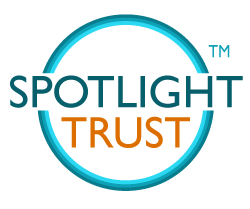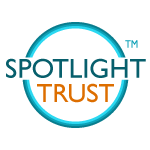Work is changing. The future of work is a topic that continues to trend along with discussions of how automation, artificial intelligence (AI), climate change, demographic shifts, the gig economy, remote work, globalization, and rapid technological innovation are transforming work, culture, and relationships.
Tools and process certainly play an important role in successfully navigating this rapid change, but they’re not enough. As management thinker and author Tom Peters observed, “Technique and technology are important, but adding trust is the issue of the decade.”
It turns out the the return on investment for addressing this issue of trust is extraordinary.

The High ROI of Trust
Paul Zak, author of The Trust Factor, the founding director of the Center for Neuroeconomics Studies and a professor of economics, psychology, and management at Claremont Graduate University, and his team found that compared with people at low-trust companies, people at high-trust companies report:
74% less stress
106% more energy at work
50% higher productivity
13% fewer sick days
76% more engagement
29% more satisfaction with their lives
40% less burnout
These findings align with PWC’s report, the Workforce of the future: The competing forces shaping 2030, where it’s noted that, “trust is the basic currency underpinning business and employment.”
Trust is also connected to the bottom line. The Great Place to Work Institute partners with Fortune to produce the 100 Best Companies to Work For. In past years, they found that “Companies whose employees praise the high levels of trust in their workplace are, in fact, among the highest performers, beating the average annualized returns of the S&P 500 by a factor of three.” Their research shows that “trust between managers and employees is the primary defining characteristic of the very best workplaces,” so it’s not surprising that trust makes up about two-thirds of the criteria.
Investing in Trust
In our work with leaders and organizations from around the world, we’ve noticed a stumbling block when it comes to addressing trust issues and developing thriving organizations. While more and more leaders agree that trust is critical to strategy, performance, culture, and change management, many are struggling with where to start.
The thing is, they don’t have to! There is no mystical formula to trust. Earning, strengthening, and even restoring trust are the results of the application of real, practical Trust-Centered™ skills – skills that can be learned.
And we’re excited to be sharing them and seeing leaders and organizations thrive as they put them into action.
So where do you start to level-up your trust skills? Here are a few options you might consider:
-
Get your FREE Building Trust at Scale Playbook, which includes five high-impact sections to help you unleash your people and your full business potential.
-
Join one of our FREE virtual workshops and walk away with Trust-Centered™ skills you can put into practice right away.
-
Register for a Superclass or consider applying to the Trusted Leader Lab, for deeper dive training in a robust repertoire of Trust-Centered™ leadership skills.
Knowing the high value of trust issues, what actions are you taking to develop this critical asset?

